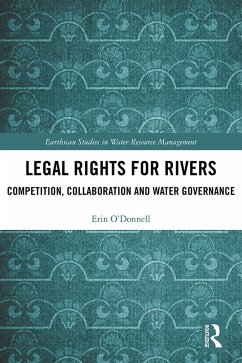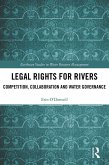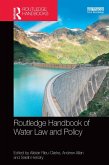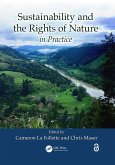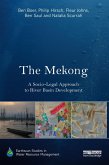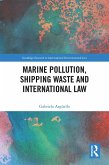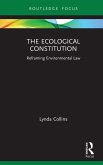To assess what it means to give rivers legal rights and legal personality, this book examines the form and function of environmental water managers (EWMs). These organisations have legal personality, and have been active in water resource management for over two decades. EWMs operate by acquiring water rights from irrigators in rivers where there is insufficient water to maintain ecological health. EWMs can compete with farmers for access to water, but they can also strengthen collaboration between traditionally divergent users of the aquatic environment, such as environmentalists, recreational fishers, hunters, farmers, and hydropower. This book explores how EWMs use the opportunities created by giving nature legal rights, such as the ability to participate in markets, enter contracts, hold property, and enforce those rights in court. However, examination of the EWMs unearths a crucial and unexpected paradox: giving legal rights to nature may increase its legal power, but in doing so it can weaken community support for protecting the environment in the first place. The book develops a new conceptual framework to identify the multiple constructions of the environment in law, and how these constructions can interact to generate these unexpected outcomes. It explores EWMs in the USA and Australia as examples, and assesses the implications of creating legal rights for rivers for water governance. Lessons from the EWMs, as well as early lessons from the new 'river persons,' show how to use the law to improve river protection and how to begin to mitigate the problems of the paradox.
Dieser Download kann aus rechtlichen Gründen nur mit Rechnungsadresse in A, B, BG, CY, CZ, D, DK, EW, E, FIN, F, GR, HR, H, IRL, I, LT, L, LR, M, NL, PL, P, R, S, SLO, SK ausgeliefert werden.
"O'Donnell's book is a fantastic piece of scholarship that helps frame the evolving legal context that humans have developed for the natural environment. In particular, its treatment of the implications emerging from according legal personality to water bodies offers invaluable insight into how we value freshwater and other natural resources, and how we seek to protect them for ourselves, our children, and the environment. This work is a vital contribution to the literature on water law and the law of nature, and its analysis will likely serve as a foundation for the further development of these legal areas." - Gabriel Eckstein, Professor of Law, Texas A&M University, USA
"Erin O'Donnell's thought-provoking book explores a new frontier in environmental law, asking whether recognizing the legal rights of rivers will strengthen, or paradoxically weaken, protection for these vital veins of water and life." - David R. Boyd, UN Special Rapporteur on human rights and the environment and Associate Professor of Law, Policy, and Sustainability, University of British Columbia, Canada

